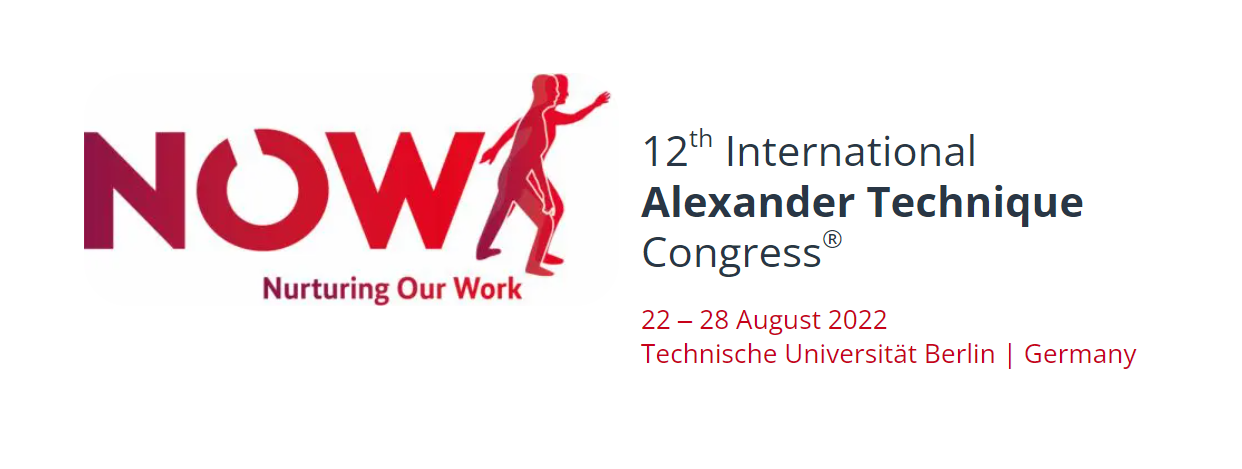 I’m just back from the 12th International Alexander Technique Congress in Berlin. It was a wonderful opportunity for Alexander teachers from all over the world to come together to share experiences and ideas. We spent the week in workshops, keynote presentations, panel discussions, work exchanges and a host of other activities. The Congress theme was NOW (Nurturing Our Work) – a pertinent topic after the challenges of the Covid pandemic.
I’m just back from the 12th International Alexander Technique Congress in Berlin. It was a wonderful opportunity for Alexander teachers from all over the world to come together to share experiences and ideas. We spent the week in workshops, keynote presentations, panel discussions, work exchanges and a host of other activities. The Congress theme was NOW (Nurturing Our Work) – a pertinent topic after the challenges of the Covid pandemic.
Compared with previous Congresses, I noticed a subtle shift in tone and style. The Alexander Technique is an educational method for self-care and self-development based on fundamental principles discovered and developed by FM Alexander. Perhaps not surprisingly, some of the more traditional types of teaching could sometimes come across as a bit didactic – after all, we call ourselves ‘teachers’ rather than practitioners. I’ve always seen myself more as a facilitator and guide, and so it was great to see a general shift towards an even more collaborative approach in how we relate with our students/clients – and in a way that aspires to be completely accepting and non-judgemental. This approach was very apparent in the workshops that were, for many reasons, particular highlights for me – those presented by Robyn Avalon, Tommy Thompson, Margarete Tüshaus and Sarah Barker.
I was also called on as a panellist for two discussion sessions – one on research and the other on hypermobility. The research panel brought together different strands of research on the Alexander Technique that ranged from effectiveness trials in different health conditions to studies aimed at understanding how changes come about. I talked about what I’ve learnt from my own research as part of the neck pain trial study team – the importance of asking the right questions in designing the research, and of how the findings are interpreted and communicated. We also looked to the future with a wish list for further research. I’d particularly like to see a large study in an area like anxiety, not least as a way of helping engender a more holistic view of the Alexander Technique among healthcare professionals. I’d also love to see research being done on how agency and sense of self change through Alexander lessons for women and marginalised communities.
In the hypermobility panel I stood in for my friend and colleague, Julie Barber who was sadly unable to attend last minute because of catching Covid. I talked about the importance of an integrational focus for our work – building postural support and encouraging everything to function together as a whole. This way of teaching is essential when working with people living with hypermobility. However, in my view it is also the most effective way of working with everyone (including but not only those living with hypermobility). Hypermobility encompasses a huge spectrum, from people with no obvious signs, including those for whom it can actually be an advantage (e.g. gymnasts and musicians), to people who have a whole range of significant symptoms that really detract from quality of life. Because of this range, we may not always know that someone is hypermobile (and they may not know either), so it is important that our teaching methods always help rather than hinder – with a focus on integration, rather than actively looking for release (which can be destabilising and dissociating).
The Congress had been postponed because of the Covid pandemic, so it felt even more welcome and joyous to come together to celebrate and nurture the unique work that is the Alexander Technique.

